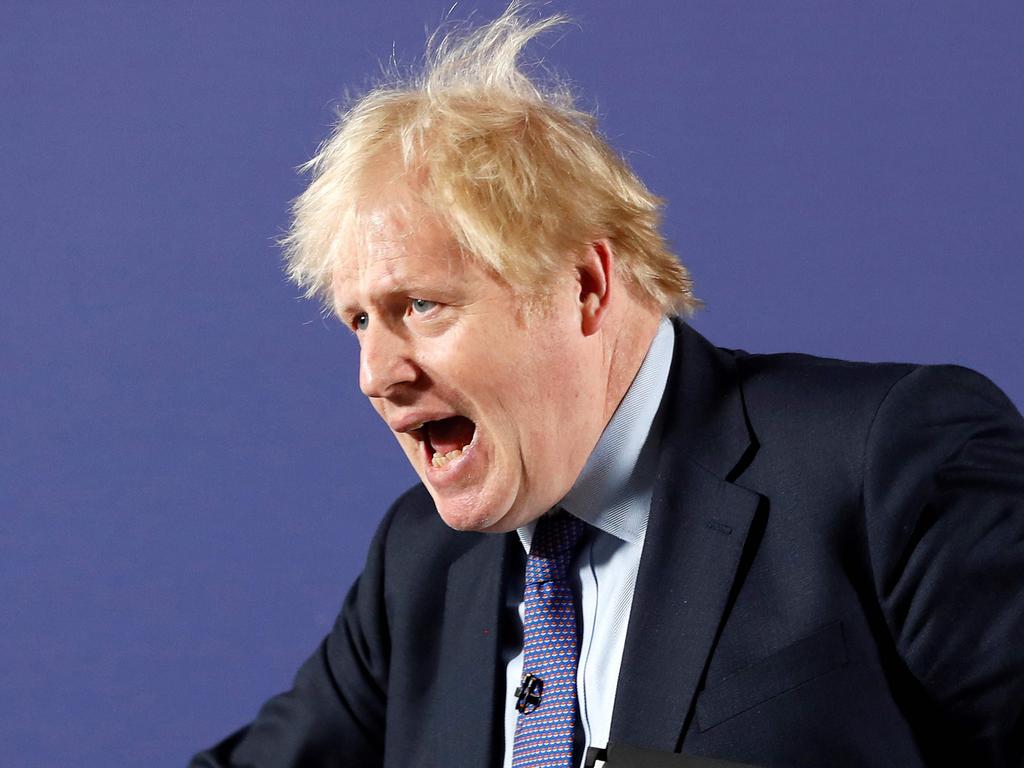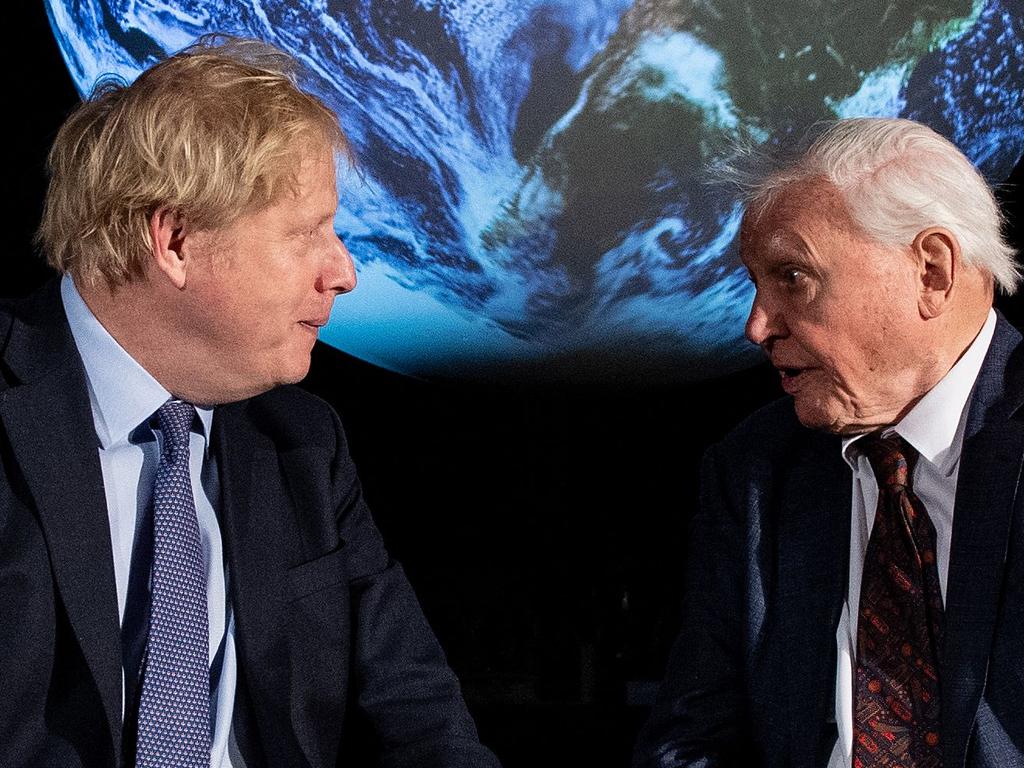Boris Johnson wants to be the mayor of Britain

Mr Houchen is the mayor of Tees Valley. The signature policies of his first term have been taking Teesside International Airport back into public ownership and using the South Tees Development Corporation, set up in the early months of his mayoralty, to purchase more than 1,400 acres of land from Tata Steel Europe. He pledges that if he wins a second term he will bring steelmaking back to northeast England.
Surprising though it may seem from all this, Mr Houchen is a Conservative. And many of the new Tory MPs in the so-called red wall seats give him part of the credit for their victory. The mayor, whose region covers Middlesbrough, Stockton-on-Tees, Cleveland, Redcar, Hartlepool and Darlington, helped to normalise voting Conservative in all those places.
When I asked a former cabinet minister to describe the new Conservative parliamentary intake he didn’t start with their views on Brexit or give me what I was looking for: an assessment of whether or not the party had shifted to the right. Instead he said that most of them were focused on their local areas and see themselves as mini-mayors in a government led by a former mayor.
A lot of analysis of Boris Johnson centres on his years as a newspaper columnist but he prefers to talk of his time as mayor of London from 2008 to 2016. And it makes sense of a lot of his premiership if one thinks of him as trying to be mayor of the UK.
Mayors tend to be pragmatists who know they are judged by whether they get the pavements cleared of snow rather than by the speeches they make. They are often hard to pin down ideologically as they focus on getting things to work and on trying to govern for the whole of their city.
Rhetoric about small government may win applause in parliament but it doesn’t fix potholes or create transport links. And party labels are often more of a nuisance than a help. Managing personal relationships with interest groups and community organisations is a crucial part of the mayor’s job and being a bit fuzzy on theory, as well as flexible rather than dogmatic, can help with that. Mayors try to make themselves a little independent of their parties and have their own brand and personal appeal.
Mike Bloomberg, New York’s former mayor, is a good example. “[Mayors] don’t have the luxury of giving speeches and making promises,” he said, describing his role in City Hall. Despite enjoying much conservative support he raised taxes, pushed for congestion pricing, established bike lanes and worked hard on greener building policies. He endorsed the Republican Scott Brown over Elizabeth Warren in the 2012 senatorial race because Brown supported gun control. Despite that, he is now making headway in his campaign to win the Democratic presidential nomination.
It’s interesting that one of his rivals for the nomination, Pete Buttigieg, has managed to mount a presidential campaign on the basis of being the mayor of a city of only 100,000 people. In an era of political heat there is something attractive about the banal politics of the mayor’s office.
In his book If Mayors Ruled the World, Benjamin Barber identifies four characteristics of successful mayors: “ (1) a strong personality marked by both hubris and humour, (2) a pragmatic approach to governing, (3) personal engagement in city affairs and (4) commitment to the city as a unique entity.” This seems like quite a good description of Boris Johnson.
Being mayor suits the character of someone who likes to be liked. And thinking of himself as mayor of the UK also helps to make sense of the emphasis on infrastructure, the choice made on HS2, the new bus policy, the free ports, the rhetoric about the National Health Service and the apparent willingness, which some Tories find bewildering, to contemplate quite large tax increases to pay for enhanced public services. The language of Reagan and Thatcher about government as being the problem rather the solution seems to be absent.
At the general election the Conservatives proposed a program light not only on detail but also on ideology and presented Boris Johnson as almost a non-party figure who would “Get Brexit Done”. But Brexit wasn’t the only important word in that slogan. Mr Johnson intends to cast himself as someone who “Gets Things Done”.
There are, however, many obstacles to this positioning. And the most obvious is that a prime minister is not a mayor. As prime minister you announce things and decide things but doing things is much harder. You pull levers and nothing happens. You make a choice and find, a year later, that no one has acted on it.
You need to guide the nation and public servants, and it is hard to do that if they aren’t sure where you are going and if they see you as merely pragmatic. It is also hard for Mr Johnson to be above his party while also leading it. His honeymoon period will end, sooner rather than later, and he will struggle to persuade some of his MPs to adopt a post-ideological position. Tax rises will be resisted. A dismissive attitude to small-state conservatism will not work with everyone in parliament. He has the political capital to prevail but he will have to spend some of it to do so.
There are plenty of Conservatives spoiling for a fight. A battle with the judges or the BBC may start with public support but will end up dividing where a mayor would wish to unite. Mr Johnson is undecided about whether he wants such fights, and while he makes up his mind battle may be joined.
The other danger with mayors is that they begin to identify themselves with their cities and see their own interests and voters’ interests as identical. This can lead to highhanded behaviour, sometimes to the point of ignoring democratic norms.
And, of course, the entire effort to “Get Things Done” cannot work if the economy does not. An awful lot of Mr Johnson’s non-ideological positioning relies on the practical success of what was in his case an undeniably ideological act: Brexit.
As Willie Brown, once mayor of San Francisco put it: “Mayors are judged by results.”
The Times







Anyone who wants to characterise the politics of this government might start with home secretary Priti Patel or by reading Boris Johnson’s senior adviser Dominic Cummings’s blog posts about the launch of Apollo 11. But you’re better off starting with someone who has never been an MP or worked in No 10 and whom you probably haven’t heard of. His name is Ben Houchen.